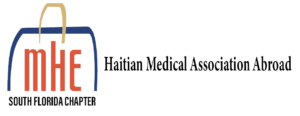Dr Seide returns from Haiti after working 3 days at the UM/Medishare compound at the UN Headquarters. The following is a report of her observations and suggestions:
First and foremost, all volunteers are putting a great effort and doing a great job given the circumstances.
OBSERVATIONS:
· When you arrive on the Tarmac, if you do not know anybody, you do not know where to go and who to address to direct you. Dr Seide’s brother was waiting for her outside the airport and drove her to the UM area.
· The UN headquarters are about 1/2 a mile from the airport. No clear indication on the road: If you do not know the area and do not speak the language, you may pass by it and miss it.
· The MINUSTHA (UN) asked University of Miami (UM) to relocate and vacate their space. Thanks to Alonso Mourning and his Charity, 4 tents are getting organized on the airport land for the medical camp: 2 hospital tents, 1 staff tent and 1 supplies tent.
· The Israeli team is working close to the Medishare compound on the United Nations campus. They seem to be well equipped and organized.
· It is a SURGICAL WARD: Surgeons are operating all day long: mostly amputations, castings and severe wound repairs. Even if you are a surgeon but you don’t know the crew, it takes a while to know how you can be useful. If you are not a surgeon, you may feel worthless at the beginning until you find your way.
· Most surgical patients are receiving strong pain medications like morphine: Constipation is a common side effect. Overdose of morphine can cause death without the antidote Narcan.
· No proper documentation: A piece of paper is taped to the bed.
· No accountability: Whoever is there and whoever is available
· Once the patient is discharge, he/she has nowhere to go to. They go sleep on the streets.
· No Post-op clinic for wound check. Patients who are saved by a surgical intervention might end up dying of sepsis or other complications.
· No sign out
SUGGESTIONS:
· A crisis orientation center at the airport to register the new comers and direct them to the needed areas. Marie Cherie and Gaby from Project Medishare have been designated for that purpose. Though very dedicated, there needs to be a system in place and transportation provided to and from the medical compound.
· Creole speaking professionals should be incorporated in the teams to assure proper communication between patients and medical staff.
· Proper organization of the logistics at the hospital:
- Distribution of beds
- Clipboards attached to each bed for vital signs
· Inventory of supplies
· Nurses, Nurses, Nurses are in dire need: Creole speaking a must.
· A MEDICAL team is a must with regular rounds to evaluate all the patients. Follow-up on all nonsurgical issues and coordination of the surgical follow-up
· Accountability: Multidisciplinary teams with a good balance of physicians, nurses, medical assistants ect… with scheduled shifts. Creole speakers on each team.
· Sign out to the new teams so they can hit the ground running
· SYSTEMS in Place and Follow Protocols
The 2nd Phase is not Glamorous:
- Keeping wounds clean and non infected
- Rehabilitation
- Prosthetics: a whole generation of Haitians is going to be physically handicapped. We need to assure that they can be self sustaining and productive to their society.
